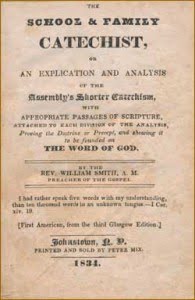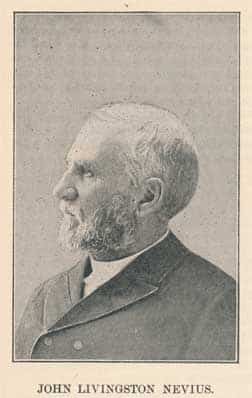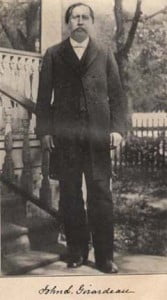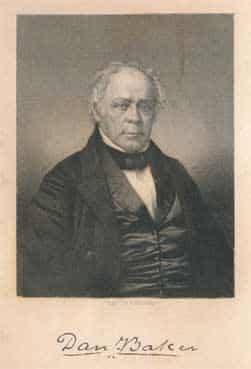THE SCRIPTURAL METHOD OF BIBLE STUDY
by Professor O. T. Allis, Ph.D.
[The Evangelical Student 1.2 (October 1926): 3-6]
THERE are certain things essential to the truly scriptural study of the Bible which need to be emphasized today in view of the insistent claims which are so often made by the advocates of the so-called “modern” or “critical” method of Bible study.
The first of these is the unity and harmony of the Bible.
This characteristic has impressed believing scholars in all ages as a signal proof of its divine origin. The fact that so many different writers, so widely separated in time, wrote a collection of many books which are in the truest sense one book, the Bible, is a strong evidence of its unique inspiration.
Yet one of the outstanding characteristics of the “modern” method is the way in which it exhibits, and the importance which it attaches to, the alleged disharmonies of the Bible. We cannot read beyond the first chapter of Genesis without being confronted with this cardinal doctrine of the critics; for the “second” account of creation (Gen. ii) contradicts, we are told, the “first.” And this is but a sample. We have, they tell us, two accounts of the Creation and the Flood; three accounts of the Plagues and of the Crossing of the Red Sea; four of the Crossing of the Jordan. Furthermore, these accounts disagree and contradict one another. The theoretical Jehovist differs from the hypothetical Elohist; and the alleged Priestly writer contradicts them both. Judges discredits the account of the Conquest given in Joshua; Chronicles is proved unreliable by Samuel-Kings. The “great” prophets are represented as the opponents of the priests and as the more or less uncompromising foes of the ritual sacrifice. Micah and Zechariah are divided between at least two authors, Isaiah is given to three; and many of these documents are declared to be composite and to have been edited, or revised, by a later compiler or “redactor.” All this partitioning and analyzing is made necessary, it is argued, by differences in language, style, ideas and manner of presentation, differences which not seldom amount to contradictions. The result is that for the “modern” student the Bible, especially the O.T., is characterized not by harmony and unity, but by discord and contradiction. How disastrous this is should be apparent to everyone, for nothing is more certain to discredit a book and destroy its influence with thinking people than to find that it does not contain a consistent and harmonious presentation of the matters which it aims to set forth.
Consequently the reverent Bible student will be very slow to accept these alleged contradictions. He will scrutinize them with the utmost care. If he does so, he will find that many of them are purely imaginary. There is nothing inconsistent about the statement in Num. xvi. that (1) a Levite and (2) three Reubenites were leaders in a rebellion against Moses, nothing to indicate that we have here two conflicting accounts of the same event The mention of two parties simply shows that the revolt was widespread and serious enough to require drastic measures. There is nothing contradictory about the statement that (1) the Lord told Moses to lift up his rod and (2) to stretch forth his hand and that then (3) the Lord caused a strong east wind to blow, in order that the Red Sea might be divided before Israel (Ex. xiv. 16,21). Such statements are different only in the sense that they record distinct features of the story, all of which are needed to complete the record. They become contradictory only when each statement is treated as complete in itself and placed in opposition to others which are designated to supplement it. Most events, especially if they be great ones, are complex; there are many factors which enter into them. Were the modern method of source analysis applied to almost any historical narrative which dealt at all adequately with an intricate situation it could easily be reduced to a mass of contradictions.
There are other alleged contradictions which are due either to a failure to recognize, or to ignorance of, all necessary facts. Thus, Hosea in pronouncing vengeance on the House of Jehu (i. 4), is not denouncing Jehu for obeying the command of Elijah as conveyed by Elisha. The explanation is given in II King x. 30 f. where the willfulness of Jehu is exposed. And it is made still clearer by the prophetic denunciation of Baasha who provoked the Lord “in being like the house of Jeroboam; and because he slew him.” By following in the sins of the House of Omri, Jehu’s House merited the same punishment. Yet Hosea is cited as an instance of a later prophet denouncing what an earlier prophet had expressly commanded!
The second essential of which we would speak, is that the Bible student should understand and accept the viewpoint of the Bible.
Many of the difficulties which the “modern” student finds with the Bible are the direct result of failure to do this, or, to put it more strongly, of the determination to judge and interpret the Bible by standards which are contrary to its whole teaching.
The oft-repeated reference in the first chapter of Genesis to God and to His sovereign acts is tremendously impressive: He spake and it was done. The Bible is a record of Goel’s wonderful works for the children of men. No one can understand it who does not accept its great major premise Goel or who seeks to set limits to His power. The O.T. purports to be primarily the record of God’s special dealings with a peculiar people to the end that through that people all the nations might be blessed. The uniqueness of the religion of Israel, of the Covenant with Abraham, of the Law given through Moses, is affirmed again and again: “God hath not dealt so with any nation.” To study the religion of Israel in the light of comparative religion as though it were similar in kind to the ethnic faiths, is to reject its most insistent ‘Claim-“All the gods of the nations are idols (worthless things), but the Lord made the heavens.”
The religion of Israel is represented as the religion of revelation. God has revealed Himself in word and in deed. He has made known what man could not discover; He has wrought wonders beyond the power of man. Miracle and prophecy are, according to the Bible, signal proofs that God has manifested Himself. The supernatural is of its very essence. A student who rejects the supernaturalism of the Bible, treats its miracles as legend, and post-dates its prophecies or reduces them to shrewd conjecture, is taking offense at what the Bible declares to be, and what the Church in all ages has regarded as, a unique and convincing proof that God has indeed revealed Himself.
Finally the Bible is the story of redemption, of salvation from sin.
John the Baptist sums up the Gospel and also shows it to be the fulfillment of O.T. religion with the words, “Behold the Lamb of God, which taketh away the sin of the world.” The Old Testament plainly teaches that the priestly sacrifices of the Law were divinely ordained; and the New Testament as plainly interprets them as prophetic of and fulfilled in the Cross of Calvary. To treat the priestly ritual as a survival of paganism and to affirm that it was repudiated by the “great” prophets of Israel leads logically to the rejection of the Cross which is the central fact of Christianity, God’s sovereign remedy for sin.
In one of our great historic creeds the statement is made: “The infallible rule of interpretation of Scripture is the Scripture itself.” We need to remember this. “God is His own interpreter.” If the Bible is the Word of God, it must be our final authority; it cannot be correctly interpreted by any standards but its own. If its human authors were inspired of God, God’s Spirit will enable us to understand it aright, if we seek His guidance. To the wise of this world the Bible is a book of riddles, sealed with seven seals. It tells of a divine revelation, miraculously conveyed; they would have it speak of man’s eager quest of truth and of his wonderful discoveries. It tells of God’s great salvation for lost sinners; they would have it describe the development of man’s religious nature and its limitless possibilities. In short the “modern” student is trying to restate in terms of a more or less frankly naturalistic evolution what the Bible states in terms of supernatural redemption. No wonder the “modern” student finds contradictions in the Bible and has to tear it chapter from chapter, verse from verse, and line from line, since he would so completely change its message. But those who study it reverently as the Word of God and seek the guidance of His Spirit will be more and more impressed with the harmony and the heavenliness of its glorious message of redeeming love in Jesus Christ our Lord.



 “Despite the fanfare and cavalcades for evangelism, this last year saw the lowest increase on professions of faith in five years, the greatest number of losses, and the lowest net gain. These shocking statistics ought to send us to our knees that we may know God’s way with His people today. Perhaps, there is a word for this year in the account of the revival God granted through John L. Girardeau’s ministry in the Anson St. Presbyterian Church of Charleston where nine-tenths of the 500 members were Negroes.
“Despite the fanfare and cavalcades for evangelism, this last year saw the lowest increase on professions of faith in five years, the greatest number of losses, and the lowest net gain. These shocking statistics ought to send us to our knees that we may know God’s way with His people today. Perhaps, there is a word for this year in the account of the revival God granted through John L. Girardeau’s ministry in the Anson St. Presbyterian Church of Charleston where nine-tenths of the 500 members were Negroes.